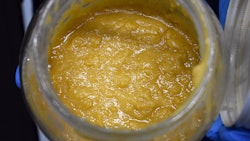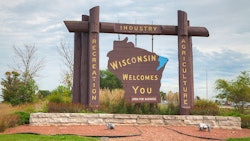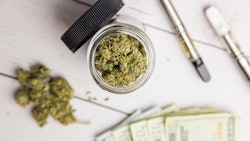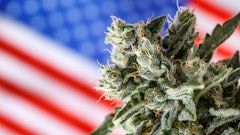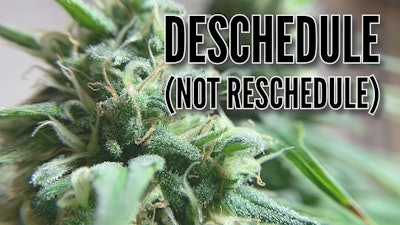
Rescheduling cannabis is the current recommendation unfolding at the federal level, but seven Democrats from New York have united to call for the plant’s full removal from the list of controlled substances.
U.S. Sen. Kirsten Gillibrand and U.S Rep. Jerry Nadler joined forces with state and local leaders Jan. 28 in calling on Attorney General Merrick Garland and the Drug Enforcement Administration (DEA) to go a step beyond rescheduling cannabis and instead deschedule the plant entirely from the Controlled Substances Act (CSA).
Beyond social justice, descheduling cannabis is an economic, medical and public safety issue, Gillibrand said in a public statement released by her office.
“Since marijuana was classified as a Schedule I substance during the war on drugs, countless lives have been torn apart, and individuals in primarily Black and Brown communities have been targeted for nonviolent cannabis-related offenses,” she said. “Studies show that legalizing marijuana could help reduce violence in international drug trafficking and generate billions of dollars for the economy.”
Gillibrand and Nadler stood with four state lawmakers from New York—Sens. Cordell Cleare and Liz Krueger, and Reps. Eddie Gibbs and Al Taylor—as well as New York City Council Member Yusef Salaam in calling on the attorney general and DEA. They also stood with Empire State NORML Executive Director David Holland, business leaders and advocates in Harlem.
Currently classified as a Schedule I drug, cannabis is in the same category as heroin, LSD and ecstasy as a substance the federal government deems as having no currently accepted medical use and a high potential for abuse.
In October 2022, President Joe Biden called on Garland and the Department of Health and Human Services (HHS) to review how cannabis is scheduled under federal law. And in August 2023, HHS recommended to the DEA that cannabis should be reclassified as a Schedule III substance under the CSA after conducting an eight-factor analysis to determine its medical benefits and potential for abuse.
Despite this incremental path toward reform, many elected leaders, businesses leaders and advocates consider rescheduling as a means for recriminalizing people who have historically been the targets of the drug war.
“For too many years, this country has waged a failed war on drugs, including the criminalization of marijuana, that has inflicted untold suffering on millions of Americans,” Nadler said in the statement. “Marijuana never should have been placed on the most restrictive schedule of the Controlled Substances Act—alongside substances such as heroin and cocaine. I appreciate the Biden Administration’s decision to review the status of marijuana, and I strongly urge the administration to deschedule it completely. It is time to end the prohibition and criminalization of marijuana at the federal level.”
Nadler also sponsors the Marijuana Reinvestment and Expungement (MORE) Act, legislation that aims to federally legalize cannabis.
RELATED: US House Democrats Introduce Bill to Federally Legalize Cannabis
In 2018, Black people were 3.6 times more likely than White people to be arrested for cannabis possession, despite similar usage rates, according to the American Civil Liberties Union.
As a result of this racial disparity, Black people are more likely to have criminal records for cannabis possession and to face “needless barriers to employment, housing and educational opportunities as a result,” according to Gillibrand’s statement released Sunday.
“The war on drugs is over—we all know this by now,” Krueger said in the statement. “And, in the end, it turns out it was nothing more than a war on the American people, particularly people of color. In New York, as in so many other states, we have demonstrated that it is possible to legalize adult-use cannabis without the sky falling. The sooner everyone in Washington admits these obvious facts, the better.”
The current scheduling of cannabis was a decision made against the political backdrop of the early 1970s, when prohibition was “used to target the antiwar left and Black people,” according to the statement.
Should the DEA follow through on the HHS recommendation and reschedule cannabis to Schedule III, then medicine may be the “catalyst to the unintended consequence of creating a national medical monopoly that could supplant the existing cannabis industry” throughout the U.S., according to Empire State NORML’s Holland.
“Such an industry contraction and concentration of the ownership of the means of production to the medical industry could stifle competition and inhibit strain development and cannabinoid innovation richly found in the existing and ongoing market,” he said. “Preservation of the state economies [built] around the cannabis industry and continued participation of the diverse pool of independent operators and entrepreneurs across the nation should be a greater priority than solely bestowing alleviation from IRS Code 280E to a chosen few. The potential for that devastating consequence can be avoided by descheduling cannabis and allowing the states to continue in their missions to foster existing markets while promoting at a more grassroots level the health and welfare of their cannabis consuming constituents.”









